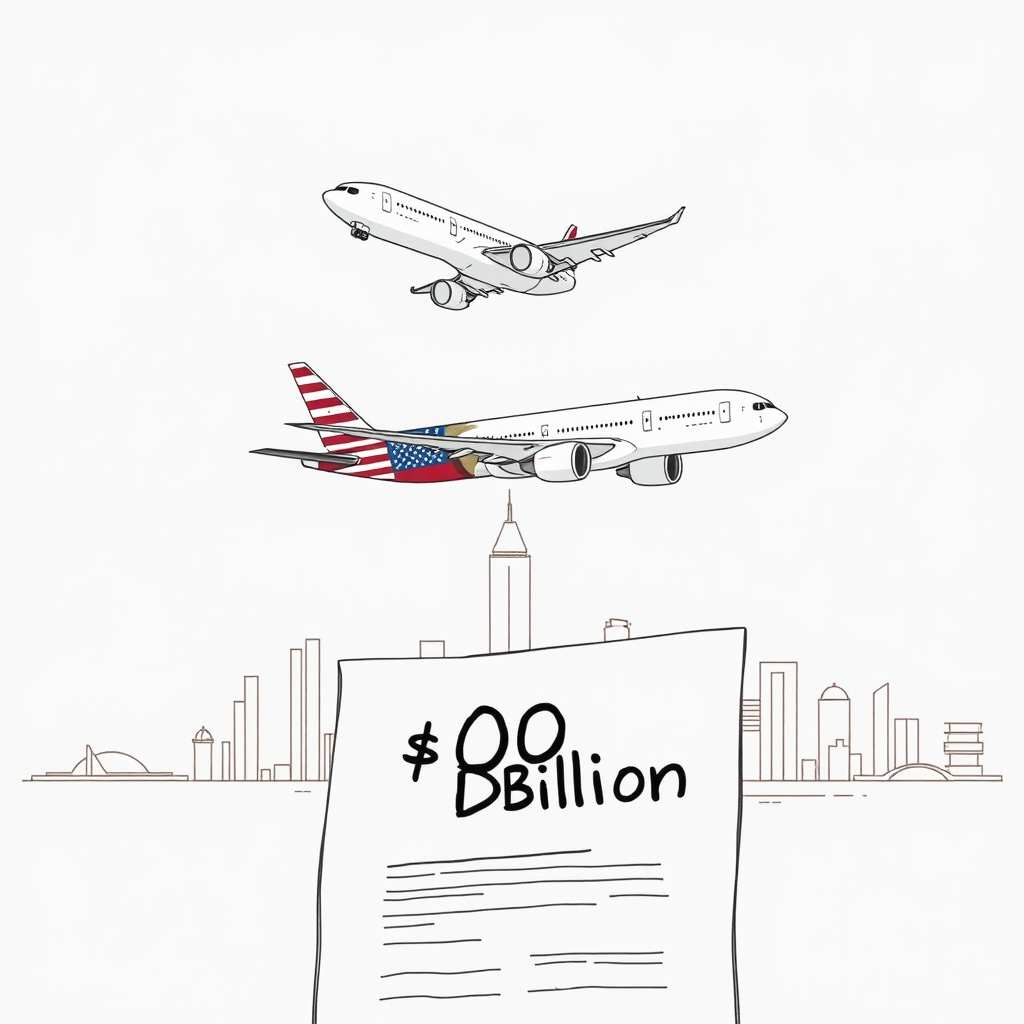Trump Seals $200 Billion Boeing Deal in Qatar

President Donald Trump concluded a Middle East tour with a significant win for both Boeing and U.S. diplomatic efforts: a $200 billion deal between Qatar Airways and the American aerospace giant. The agreement, finalized in Doha on Wednesday, involves the purchase of 160 Boeing jets by the state-owned Qatari carrier, providing a crucial boost to a company facing considerable headwinds.
Boeing has struggled recently, with orders plummeting 60% last year due to the 737 Max crisis and a prolonged machinists’ strike. While a fragile recovery was underway, Trump’s trade policies posed a potential threat to gains through increased costs from tariffs. This deal, therefore, represents a vital lifeline.
Beyond the economic implications, the agreement highlights Trump’s personal engagement with aviation – a sector where his business acumen, presidential role, and deal-making instincts converge. Known for branding his own Boeing 757 as “Trump Force One,” the President also appears keen on accepting a lavishly outfitted 747-8 jet offered by Qatar as a potential interim replacement for the aging Air Force One.
This offer has sparked considerable controversy in Washington. While Trump frames it as a cost-saving measure – arguing why taxpayers should fund a replacement when one is offered for free – critics raise serious ethical, legal, and security concerns. Experts warn that retrofitting a foreign-owned aircraft to meet U.S. military standards, including defenses against nuclear and missile threats, could cost over $1 billion and take years. Intelligence officials are concerned about potential espionage devices hidden within the plane’s luxurious interiors. Furthermore, Democrats in Congress have questioned whether accepting such a gift would violate the Constitution’s Emoluments Clause, which prohibits federal officials from accepting gifts from foreign governments without congressional approval.
The Qatar-Boeing deal is part of a larger pattern of aviation agreements secured during Trump’s four-day visit. Saudi Arabia’s sovereign wealth fund also signed a $4.8 billion agreement with Boeing, and a British airline committed to a $10 billion order, all contributing to the administration’s push to increase American exports.
While the economic benefits of these deals are undeniable, the controversy surrounding the potential acceptance of the Qatari jet raises legitimate questions about transparency and potential conflicts of interest. The situation underscores the complex interplay between economic diplomacy, personal interests, and the need to uphold ethical standards in government. It remains to be seen how these concerns will be addressed as the deal progresses, but the episode serves as a reminder of the scrutiny facing the administration’s foreign engagements.